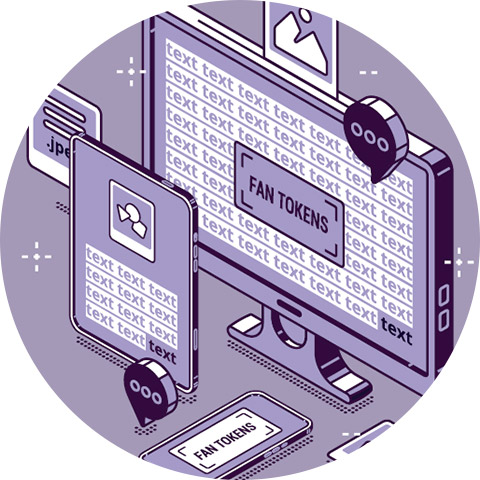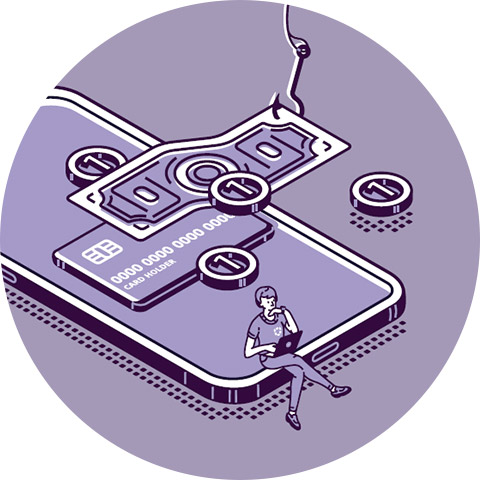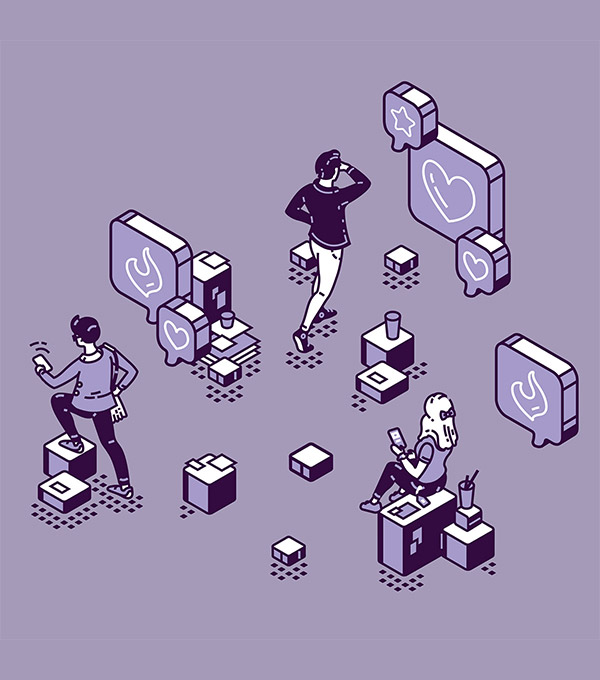코로나19로 급격히 달라진 팬들의 위상에 해외 프로스포츠 구단은 어떻게 대응하고 있을까. 새로운 플랫폼이 탄생시킨 프로스포츠와 팬의 관계를 멀티미디어 에이전시 ‘THE PEOPLE’ 설립자인 Kian Bakhtiari의 기고로 알아봤다.
해당 원고는 독자들의 편의를 위해 일부 의역했으며, 특히 원문의 ‘Sports Brand’는 ‘프로스포츠’로 통일하였습니다.
원문을 보고 싶으시면 [원문보기]를 눌러주세요.
SPORTS BRAND
FANS AND CREATORS
: BLURRED LINES AND NEW RELATIONSHIP
We humans have been absorbed in sporting events ever since Gilgamesh grappled with Enkidu in the Epic of Gilgamesh. In the last 100 years, technology has radically changed the face of sports. The emergence of television as the dominant medium expanded access to a wider audience, beyond local sports arenas. And mass viewership accrued commercial sponsorships.
But a global pandemic has forced the sports industry to innovate and find new revenue streams. Triggered by league closures, changes in regulation and economic uncertainty. Often, big challenges unlock new market opportunities.
Sports brands have discovered new ways to engage with fans in the digital world. The use of fan tokens has offered sporting organizations the opportunity to monetize fandom. Using fan tokens, fans can unlock exclusive collectibles, experience special sporting moments and vote on sporting decisions. It works because passion, community and camaraderie already exist in sports, technology is merely an enabler.
For example, some of the world’s biggest football clubs, including Barcelona, Inter Milan, Juventus, Man City are using block-chain enabled fan token platform, Socios. By owning tokens, supporters can vote on decisions such as goal of the season, next season’s away kit and the music inside stadiums. The app has blown up since its launch with 900,000 active users. Europe’s biggest clubs have made £205m on Socios last year. The estimated value of fan tokens is now $516.6m - from a base of $56m in 2020 - and is projected to hit $10bn in the coming years.
Proponents of the scheme say fan tokens offer fans unprecedented opportunities to vote on matters they care about. It can extend engagement beyond 1% of fans that attend matches in stadiums. In fact, most token owners are from Brazil, Turkey, Korea and Japan. It could be argued such tools have democratized sports by widening participation to a global audience outside traditional spheres of sporting power.
However, Socios has attracted strong criticism from local support groups, including Arsenal, Leeds United and Aston Villa. As well as the UK Football Association which stated: “Socios attempts to monetise fan engagement which the leagues and clubs have committed to doing for free. There should be no financial barrier to engaging with your football club.”
In the future, we are likely to see increased friction between local fans with historic connections and global fans whose support is almost entirely online. Sports brands need to create a strategy to manage this new dynamic without alienating either set.
Criticism hasn’t slowed down expansion, Socios has recently announced a flurry of partnerships with high-profile teams in the NBA. With the fan engagement platform working directly with 19 out of 30 teams that play in the NBA.
Despite the injection of cash in sports – funded by fans - supporters had no direct influence on decision making or the direction of sports. Until the 21st century, fans were simply passionate spectators. More recently the internet, in particular, social media has given fans a collective voice and means to interact.
Similar to the current relationship between brands and consumers. Sports organizations are required to listen to the demands of fans if they want to remain relevant. Currently, most cases of fan influence are still gimmicky and inconsequential. Even though millions of remote fans feel they can finally be heard. Fan power currently revolves around social media polls, PR activations and content creation. Token holders are not consulted about the management of the sports brand.
Yet it’s easy to conceive a future where fans become major stakeholders in decision-making. An early example is Fan Controlled Football, the only professional sports league that enables fans to call the plays in real-time. On Twitch, fans of the offensive team get to vote on what play to run. The play with the most votes wins. Fan Controlled Football is crafted for Twitch with fan participation baked into the core. After all, new media enables new behaviors and relationships.
For legacy sports brands and organizations, it’s hard to imagine fans dictating governance or match tactics, but ultimately fans are demanding more control and influence. We currently stand on the precipice of a radical transfer of wealth from private ownership to community-based ownership models. The collision of the physical and virtual worlds accelerated by a global pandemic has blurred the lines between brands and creators. Similarly, it has opened up new possibilities for fans - not brand sponsors -to influence the actions of their favourite individuals and team.
We live in a world where anyone can become a creator. The creator economy is an escape from centralized corporations. We are now seeing the distribution of individual creativity at an unprecedented scale. Under this new model, no single entity wields absolute control. Today, the same dynamic is being played out in the world of sport. Fans have gained newfound creative and decision-making powers.
The creator economy has exploded in popularity this year. Powered by a thin layer of technology - hosted by subscription platforms and enabled by NFT’s - creators can now directly make money from their audience. Nowhere is this more apparent than in the world of sports. Where the relationship between sports brands and fans is being redefined. We are witnessing sports fans shift from passive consumers to active decision-makers.
The future of sports is people-powered and tech-enabled. There’s every chance the sports organizations of the future will be co-created and co-owned by athletes and their community of fans. We just need to be careful not to destroy the soul of what made sports special in the first place.
열정·연대감을 바탕으로 탄생한 팬토큰
인간은 길가메시 서사시(역자 주: 고대 메소포타미아 신화)에서 길가메시가 엔키두와 싸움을 벌인 때부터 스포츠 이벤트에 흠뻑 빠졌다. 이어 지난 100년에 걸친 기술의 발전은 스포츠의 얼굴을 급진적으로 바꿔 놓았다. TV라는 강력한 도구는 스포츠의 영역을 지역에서 전 세계로 확장했고, 시청자가 증가함에 따라 스폰서십 시장이 형성되었다.
그러나 코로나19 팬데믹의 영향으로 스포츠 산업은 신규 매출원을 발굴하기 위해 혁신해야만 했다. 리그 조기 중단이나 규정 변경, 불확실한 경제 상황 등이 촉발한 큰 변화는 새로운 시장의 가능성을 눈뜨게 했다.
이에 프로스포츠는 디지털 환경에서 팬들과 접촉할 새로운 방법으로서 팬토큰*을 찾아냈다. 프로스포츠는 팬토큰 덕분에 팬덤을 현금화하는 데 성공했다. 팬들은 팬토큰을 이용해 나만의 기념품이나 특별한 순간의 경험을 독점적으로 보유할 수 있으며, 프로스포츠의 의사결정에도 참여할 수 있게 됐다. 팬토큰은 스포츠에서 이미 존재했던 열정, 연대감, 동지애를 통해 작동하며, 기술은 그저 방아쇠 역할을 했을 뿐이다.
* 팬토큰: 위·변조가 불가능한 블록체인 기술이 적용된 NFT(대체불가능한토큰)의 하나로, 특정 자산의 소유권과 진위를 영구적으로 기록하는 새로운 형태의 디지털 자산이다.

‘팬토큰’이 촉발한 지역 팬과 글로벌 팬의 갈등
예를 들어, 바르셀로나, 인테르나치오날레, 유벤투스, 맨체스터시티처럼 세계 굴지의 축구클럽들은 블록체인 기반의 팬토큰 솔루션인 ‘소시오스’를 도입했고, 토큰을 보유한 서포터즈는 시즌 목표, 차기 시즌 원정 유니폼 디자인, 홈경기장 내 BGM 등을 결정하는 과정에 투표권을 행사할 수 있다. ‘소시오스’의 활성 사용자 수는 론칭 이후 90만 명을 돌파했다. 지난해 유럽 빅클럽들은 ‘소시오스’를 통해 매출 2억 500만 파운드를 기록했다. 팬토큰의 누계 가치는 2020년 5,600만 달러에서 현재 5억 1,660만 달러로 치솟았고, 향후 100억 달러 규모로 성장할 것으로 추산된다.
팬토큰 지지파는 팬토큰 덕분에 팬들이 클럽 내의 진짜 관심사에 투표로 직접 참여할 기회를 얻는다고 말한다. 토큰 구매자는 대부분 브라질, 터키, 대한민국, 일본에 거주하는 팬들이며 그들의 참여도는 실제로 경기장을 찾는 관중수의 1%를 상회한다. 이처럼 팬토큰은 팬베이스를 전통적 개념에서 전 세계로 확장함으로써 스포츠 소비의 민주화를 실현하는 도구라고 볼 수 있다.
반대 의견도 존재한다. 아스널, 리즈유나이티드, 애스턴빌라 등 현지 서포터즈는 ‘소시오스’를 강하게 비난한다. 잉글랜드축구협회도 “‘소시오스’는 그동안 리그와 클럽들이 무료로 제공해 왔던 팬 참여에 돈을 지불하게 하려고 한다. 클럽과 팬 참여의 사이에는 어떠한 금전적 장애물도 있어선 안 된다”라는 입장을 밝혔다.
앞으로 전통적 연대감으로 무장한 지역 팬들과 주로 온라인상에서만 활동하는 글로벌 팬 사이에서 마찰이 벌어질 것으로 보인다. 프로스포츠는 어느 한쪽을 잃지 않도록 새로운 역학구조에 대응하는 전략을 짜야 한다.
최근 ‘소시오스’는 미국 프로농구 NBA의 인기팀들과 파트너십을 체결하는 광폭 행보를 이어가고 있다. NBA 소속 30개 팀 중 19개 팀이 이미 팬토큰 대열에 합류했다. 지역 팬들의 비판 여론이 신기술의 유속을 떨어트릴 힘이 없다는 증거다.

플랫폼이 창조한 팬과의 새로운 관계
팬들의 호주머니에서 나온 현금이 스포츠 시장으로 유입되었지만, 팬들은 스포츠의 방향성이나 의사결정에 직접적인 영향력을 행사하진 못했다. 21세기 전까지 팬들은 단순히 열정적인 관람객에 머물렀다. 최근 들어 인터넷, 특히 소셜미디어는 팬들에게 집단적 목소리를 내거나 쌍방향 의사소통을 하는 기회를 제공했다.
프로스포츠와 팬의 관계도 비슷하다. 프로스포츠가 시장에서 소통이 원활한 대상으로 인식되려면, 팬의 요구를 경청해야 한다. 여전히 스포츠 팬들이 영향력을 미치는 사례는 대부분 보여주기 식이거나 진지하게 받아들여지지 않는다. 프로스포츠가 드디어 글로벌 팬들 수백만의 목소리를 듣기 시작했다고 해도 마찬가지다. 팬의 힘은 주로 소셜미디어 투표나 홍보 캠페인, 콘텐츠 제작을 중심으로 돌아간다. 스포츠 팀에서는 토큰 보유자라고 해도 경영에 관련된 부분까지 의견을 묻지는 않는다.
하지만 장차 팬들이 의사결정에 관여하는 주주 입지까지 획득하리라는 상상은 헛된 꿈이 아니다. ‘팬 컨트롤드 풋볼(Fan Controlled Football; 실내 7인제 미식축구)’은 그런 추세의 초기 사례라고 할 수 있다. 2017년 출범한 FCF는 팬들이 실시간으로 특정 플레이를 요구할 수 있는 최초의 프로스포츠리그다. 공격권을 획득한 팀의 팬들은 공격 작전을 ‘트위치’에서 실시간 투표로 결정할 수 있다. FCF는 스포츠에 진심인 트위치 팬들에 최적화되어 있다. 새로운 플랫폼이 새로운 팬 행동과 관계를 창조한 것이다.
팬덤과 함께할 프로스포츠의 미래
기존의 프로스포츠는 팬들이 경영 혹은 실제 경기의 작전을 쥐락펴락 하는 상황을 상상하기 어렵겠지만, 팬들은 더 큰 참여도와 영향력을 원한다. 이제 프로스포츠는 돈 많은 개인의 소유에서 커뮤니티 기반 오너십으로 빠르게 넘어가는 한가운데에 서 있다. 코로나19 팬데믹은 실제와 가상의 충돌을 촉발했으며, 프로스포츠와 크리에이터 사이에 존재했던 경계선을 희미하게 하고 있다. 이러한 변화는 개인이나 팀의 행동에 영향을 끼치는 힘이 브랜드 스폰서에서 팬들 쪽으로 이동할 가능성까지 제시한다.
지금 우리는 누구나 크리에이터가 될 수 있는 세상에서 산다. 크리에이터 이코노미는 기존 미디어로부터의 탈출을 의미한다. 개인의 창의력이 전례 없이 확산되고 있는 세상에서 절대권력을 휘두를 수 있는 매체는 존재하지 않는다. 오늘날 스포츠 세계에도 동일한 역학구조가 작동한다. 팬들은 새롭게 탄생한 창조적 의사결정권을 획득했다.
올해 크리에이터 이코노미의 인기가 폭발했다. 구독 플랫폼과 NFT 덕분에 크리에이터들은 높지 않은 기술 수준만으로도 각자 대중으로부터 직접 돈을 벌 수 있게 됐다. 이러한 변화는 팬과의 관계가 재정의되고 있는 스포츠 세계에서 더 뚜렷하다. 지금 우리는 스포츠 팬들이 수동적 소비자에서 능동적 의사결정권자로 진화하는 모습을 목격하고 있다.
인간의 힘과 기술이란 도구가 스포츠의 미래를 조각할 것이다. 미래의 프로스포츠 역시 선수나 팬덤과 함께 공동으로 창조되고 소유될 가능성이 얼마든지 있다. 스포츠를 특별한 존재로 만드는 원초적 영혼을 파괴하지 않도록 신중을 기하는 것이 우리가 지녀야 할 태도다.







